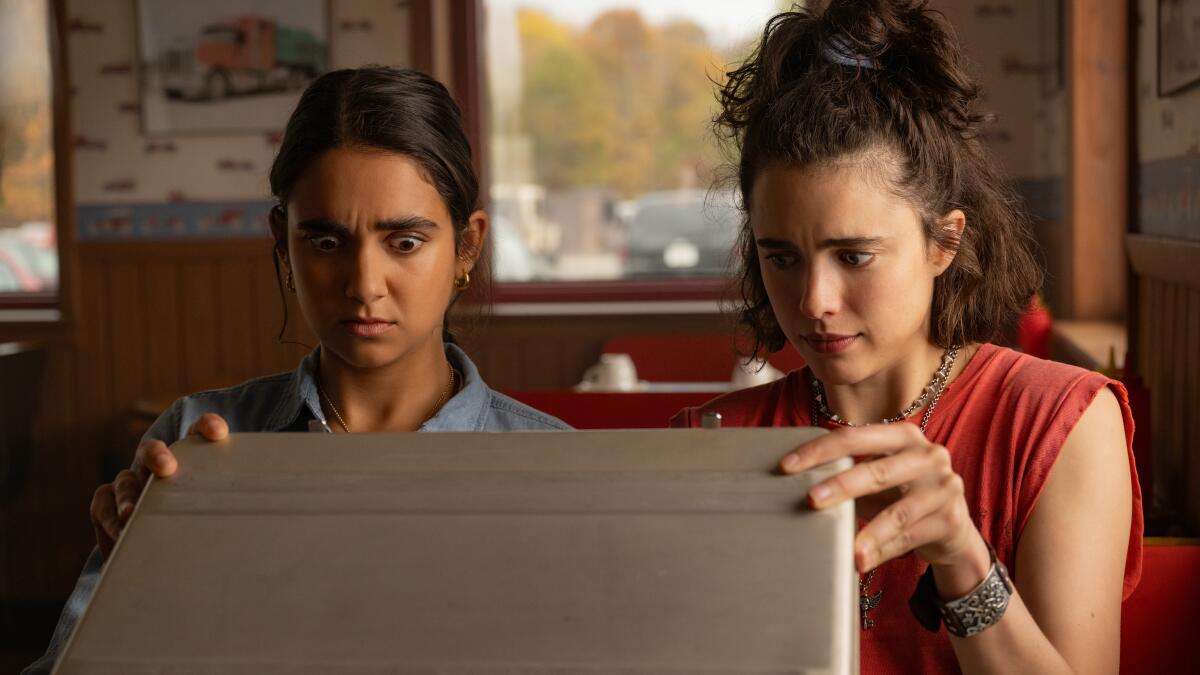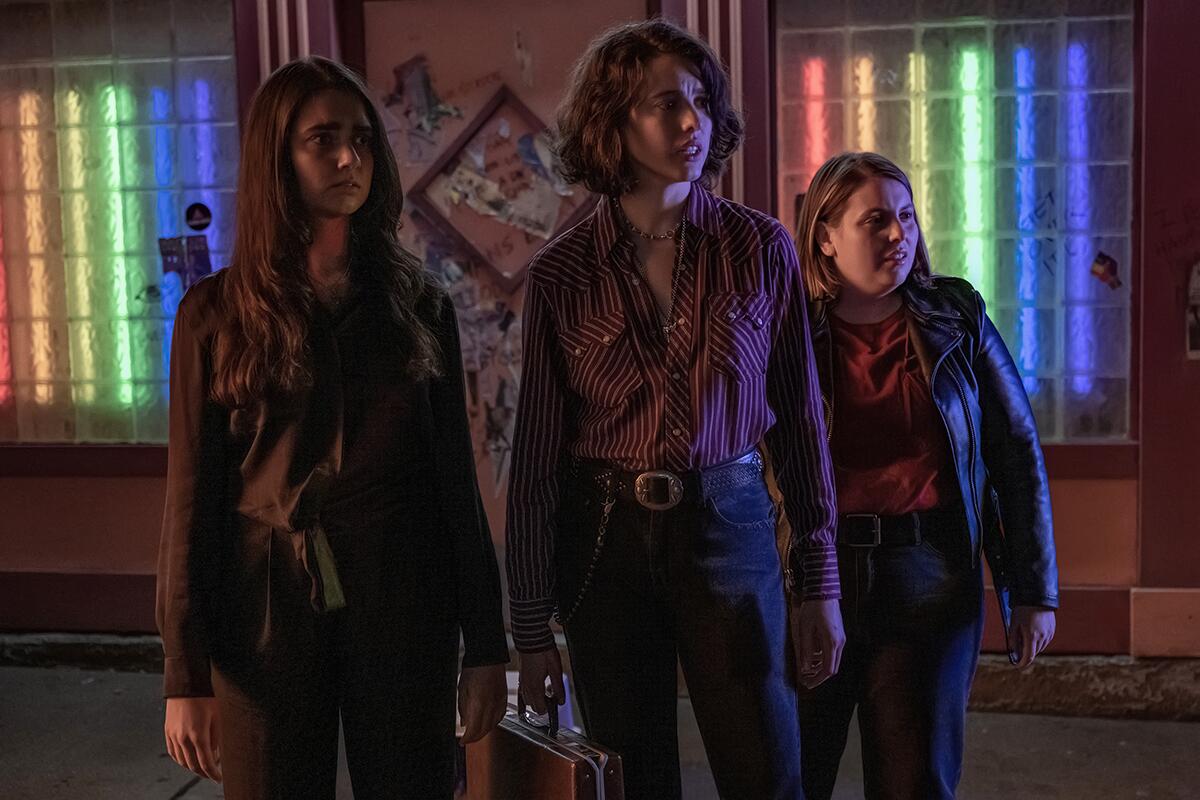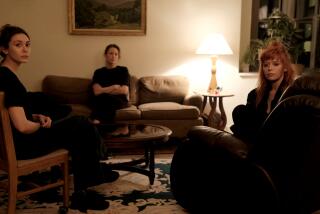Made by a solo Coen brother, ‘Drive-Away Dolls’ is trashy fun and exceedingly disposable

- Share via
It’s fascinating that Ethan Coen and Tricia Cooke, longtime filmmaking collaborators and spouses, and the creative team behind the exploitation flick “Drive-Away Dolls,” have repeatedly — and lovingly — described their new film as “trashy” in interviews. It’s a way of nodding to influences like the “Pope of Trash” himself, John Waters, and titillating B-movie king Russ Meyer. Or perhaps it’s a way to get ahead of, and away from, certain expectations tied to Coen and his former filmmaking partner, his brother Joel. This ain’t your daddy’s “No Country for Old Men,” after all.
“Drive-Away Dolls” rather excitedly asserts a space that one could call “a country for young lesbians,” if one were so inclined. The film itself is a “queering” of the ’90s crime caper, the kind of sardonic, ironic, muscular and oh-so-masculine film that the Coen brothers and their contemporaries (Quentin Tarantino, Guy Ritchie, et al.), popularized some three decades ago, birthing generations of film bros.
Coen and Cooke wrote the film together and essentially co-directed, though only Coen is credited as the director, with Cooke as editor (she also edited “The Big Lebowski” and “O Brother, Where Art Thou?” with the brothers). The script, written some 20-odd years ago, originated from Cooke’s queer youth in New York City’s lesbian bars and has been sitting on the back burner for years. The 1999 setting of these events is at once a reflection of the script’s age, and an inadvertent throwback to the kinds of movies it references. With its rapid-fire deadpan dialogue, low canted angles, detached, ironic violence and kooky transitional wipes, it feels self-consciously retro, even if it was, at one time, intended to be contemporary.
The plot centers around an odd couple of friends: Jamie (Margaret Qualley), an amorous lesbian Lothario, and Marian (Geraldine Viswanathan), a buttoned-up office worker, who decide to drive to Tallahassee, Fla., when Jamie catches too much heat for cheating on her cop ex, Sukie (Beanie Feldstein). The friends opt for a cheap “drive-away” rental car and are accidentally given a vehicle with a secret stash in the trunk, sparking a chase across state lines involving a senatorial sex scandal. And though they’ve got two bumbling henchmen in pursuit, these gal pals live, laugh and lady-love their way through every sapphic saloon south of the Mason-Dixon line.

It’s “Pulp Fiction” with dildos, and it’s unabashedly horny and female pleasure-centric. Yet, one can’t ignore the nagging sense, at times, that “Drive-Away Dolls” just feels like the lesbian porn parody of a dude-heavy crime comedy. A basement make-out party hosted by a women’s soccer team is just a little too far-fetched, but then again, so is the supremely silly sex scandal that animates the entire plot. The film is often crude in a way that’s cringe-worthy, but it’s also stacked with jokes and moves at such a brisk pace (it’s barely 85 minutes) that it’s over before you know what hit you.
Qualley and Viswanathan are fantastically committed and charismatic, with the former demonstrating a capacity for broad comedy. Viswanathan is lethally precise in her line deliveries. But open the hood of the story and it turns out this beater is a lemon: The mechanics of the plot simply aren’t there. How or even why are these two friends? Colman Domingo growls appealingly as some sort of crime boss, but who is his character? What are the stakes of this scandal and why should we care? Does plot device A insert into story element B? Maybe not, and maybe no one cares if this jumble of amusing parts makes a coherent whole.
The slight and scanty “Drive-Away Dolls” could dissipate with a gust of wind, but it beats a hasty getaway before that becomes a problem. While its story fails to justify its own existence, it delivers what it says on the tin: dumb, randy fun, even if that feels retrograde in more ways than one.
Katie Walsh is a Tribune News Service film critic.
'Drive-Away Dolls'
Rating: R, for crude sexual content, full nudity, language and some violent content
Running time: 1 hour, 24 minutes
Playing: In wide release Friday, Feb. 23
More to Read
Only good movies
Get the Indie Focus newsletter, Mark Olsen's weekly guide to the world of cinema.
You may occasionally receive promotional content from the Los Angeles Times.










